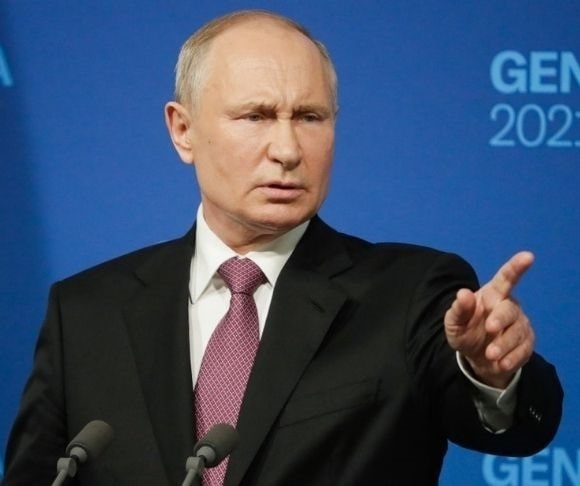Russian President Vladimir Putin has taken the final step in the propaganda war against his own people, passing a law that could see journalists jailed for up to 15 years for spreading what the Kremlin determines is “fake” information about the country’s military action in Ukraine. This move has prompted a number of international outlets to stop broadcasting in the region, including CNN, Bloomberg News, and the BBC.
Putin has also cut off access to social media platforms Facebook and Twitter.
It is not just foreign media organizations who feel the pinch, however. Dozhd, or TV Rain, an independent Russian news channel, decided to go off the air rather than face prosecution after the government deemed it was “inciting extremism, abusing Russian citizens, causing mass disruption of public calm and safety, and encouraging protests.” The staffers objected and walked off set during a broadcast. CEO of Dozhd, Natalya Sindeeva, posted a message to social media stating, “We need strength to exhale and understand how to work further. We really hope that we will return to the air and continue our work.”
The Ekho Moskvy radio station has also decided to call it a day. “The Ekho Moskvy board of directors has decided by a majority of votes to liquidate the radio channel and the website of Ekho Moskvy,” Editor-in-Chief Alexei Venediktov wrote.
The Press Purge
On Friday, March 4, both chambers of the Russian parliament voted in favor of Putin’s crackdown laws that would see journalists prosecuted for reporting against the government narrative. The head of the BBC, Tim Davie, noted that this new law would criminalize journalists. He said, “Our BBC News service in Russian will continue to operate from outside Russia… The safety of our staff is paramount and we are not prepared to expose them to the risk of criminal prosecution simply for doing their jobs.”
But it is not only within the country that the press is being restricted. Russian state-funded media group RT closed up shop in the United States. Its head office in Washington D.C. and bureaus in New York, Los Angeles, and Miami – totaling around 120 staff members – were informed of the decision on Thursday, March 3. Since then, a number of locations have blocked or limited access to the RT website.
Censorship Begets Censorship
It does not seem to be only Putin who is engaged in limiting the free flow of information. Tesla founder Elon Musk made waves on March 5, when he posted on Twitter that his satellite internet provider company, Starlink, had been asked to join the censorship war. He wrote:
“Starlink has been told by some governments (not Ukraine) to block Russian news sources. We will not do so unless at gunpoint.
Sorry to be a free speech absolutist.”
The backlash from other social media users was swift, with many making the case that Russian news outlets are nothing but mouthpieces for the ruling government. Musk responded, saying, “All news sources are partially propaganda, some more than others.”
No Good Options
When the leader of a regime must resort to censoring his nation’s press with threats of prosecution, it implies that the government is in fear of its own people. If the truth is deemed too dangerous, or the official narrative is determined to be unable to withstand criticism, then censorship becomes the last refuge of the scoundrel.
In countries other than Russia, we have seen similar forms of censorship over the last few years. Such entreaties to cancel one voice, or to restrict another have always been couched in the terms of protecting the public good. Perhaps as the West sees how Putin has cracked down on speech he determines detrimental to his cause, we will consider for a moment the slippery slope we ourselves face.
~ Read more from Mark Angelides.





